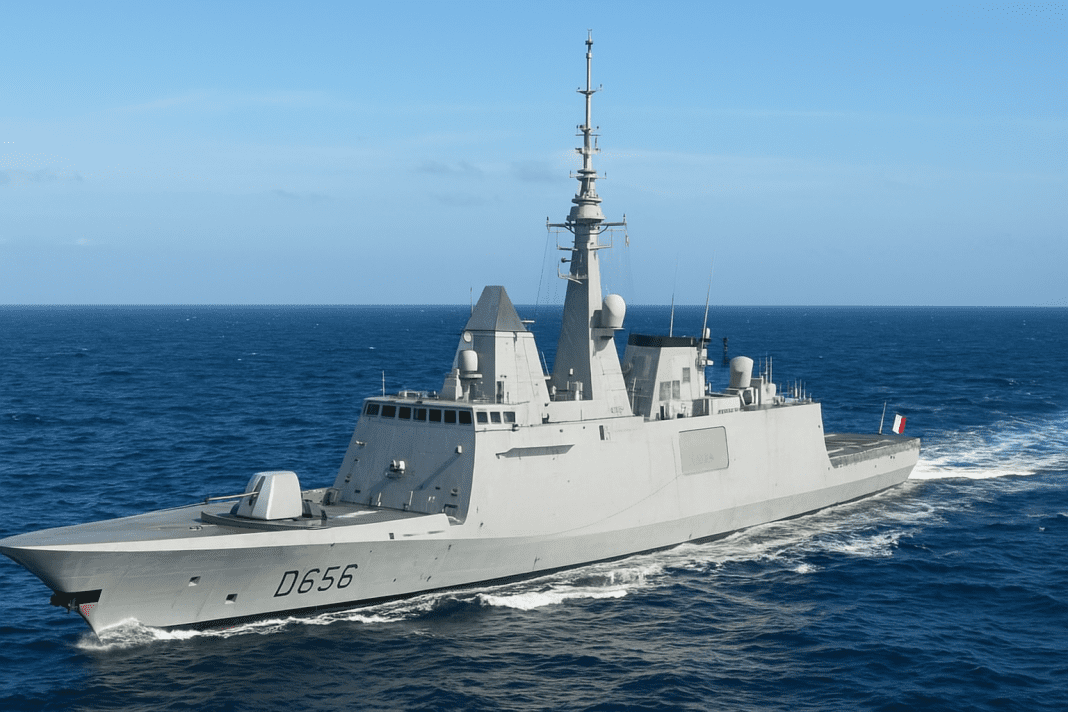A French frigate has completed a major surveillance mission near Japan to monitor North Korea’s illegal ship-to-ship transfers. Japan confirmed that the mission took place from late October, marking one of the most active international patrol efforts in recent weeks.
French Frigate Leads New Patrol to Track Illegal Sea Transfers
The French frigate, called FS Prairial, joined countries working together to stop ships from secretly trading oil, coal, or banned goods with North Korean vessels. These hidden transfers break United Nations rules designed to keep North Korea from expanding powerful weapons programs.
Officials did not reveal exactly when the ship finished its work in Japan, but the French frigate sailed to Vietnam and Brunei by mid-November, confirming that it had already completed the surveillance operation.
🔓 Massive cyberattack rocks French defense giant—hackers claim 1TB breach
France has taken part in U.N. sanctions enforcement for many years. Since 2019, it has joined these missions eight times, and the French frigate Prairial has visited Japan four times specifically to carry out monitoring tasks.
How the French Frigate Helps Detect Hidden Smuggling
North Korea has used ship-to-ship transfers for years to bypass strict U.N. limits placed on its trade. These transfers usually happen quietly in open waters, where ships meet away from busy ports and switch off their tracking devices.
The French frigate plays an important role in spotting these activities. During its first operation in early 2021, the French frigate identified two unmarked merchant ships exchanging goods in the East China Sea. This sighting showed that even during the pandemic — when normal trade nearly stopped — secret smuggling continued.
These transfers often involve oil or coal, which can be moved from one ship to another without docking. Some vessels hide their flags or use fake names to avoid being tracked. By patrolling these waters, the French frigate and other international ships help reveal how North Korea tries to get around U.N. rules.
Lafarge accused of paying Islamic State group to keep Syria plant running, faces trial in France
Several nations also believe North Korea has used sanctioned ships to send military supplies to Russia. While North Korea denies breaking any rules, many governments still monitor these activities closely.
Canada and New Zealand also deployed ships during the past month for similar surveillance missions, showing that countries are continuing their efforts even when global tensions make cooperation harder.
The work done by the French frigate adds to a larger system of checks that help countries understand how North Korea moves goods illegally. These missions give governments clues about new smuggling routes and tactics.
Tensions and Challenges Surrounding the Missions
These operations do not take place without difficulties. North Korea often rejects sanctions and frequently criticizes patrols carried out by countries like France. The French frigate’s presence in the region is part of a larger international effort that North Korea regularly condemns as interference.
Tensions also rise when patrol ships enter waters that other countries claim as their own. Canada and Australia have previously reported that China tried to block or interfere with their aircraft and ships during similar missions. China typically responds by saying that these nations were operating too close to its claimed territory, even though they were carrying out U.N.-supported activities.
Before last year, officials shared findings from these patrols with a U.N. group known as the Panel of Experts. This group kept records of how North Korea broke sanctions. But after a veto dissolved the Panel, authorities stopped making many patrol reports — including work done by the French frigate — public.
Italy-Greece Warship Pact Ignites Heated Debate Over Bergamini Frigate Acquisition
Countries created a new group called the Multilateral Sanctions Monitoring Team (MSMT) to replace the earlier Panel. However, its first two reports did not include the detailed findings that patrol ships like the French frigate usually gather.
Even so, the French frigate and ships from other countries continue their missions. Recent deployments by France, Canada, and New Zealand show that nations supporting U.N. rules remain committed to preventing illegal transfers at sea.
The latest mission by the French frigate is another example of international cooperation during a time when monitoring North Korea’s activities has become harder. Despite political challenges, these patrols continue to play a key role in identifying secret maritime transfers that could help North Korea grow its weapons programs.

